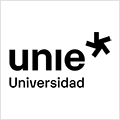Theoretical foundations of decision-making, financial accounting, model of the determination of public debt in an open economy, money, inflation, unemployment, growth and instruments of economic policy, basic business theory, national and international economic reality, productive sectors, public sectors, economic institutions and their development, basic juridical legislation of civil rights institutions, mercantile laws, labor laws, and fiscal laws.
Instrumental knowledge: linear algebra, differential and integral calculus, statistics, econometrics, probability, simple and multivariable models of regression.



